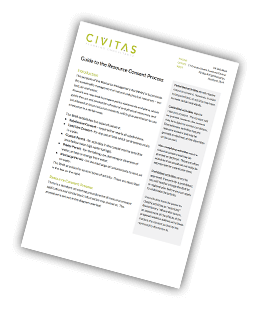RMA Amendments Take Effect - Information Overload?
By Penny Anson
 Changes to
the level of detail required for resource consent applications came into effect on 3 March 2015.
Changes to
the level of detail required for resource consent applications came into effect on 3 March 2015.
This follows amendments to the RMA in September 2013 to “simplify and streamline” the consenting process.
The changes affect Section 88 and Schedule 4 of the RMA which set out how to make an application, what to include in the application and the
consent authority’s formal lodgement processes.
The key changes include:
1. A 10 working day time frame for consent authorities to determine whether an application is complete (councils currently have 5 working days to make this determination).
2. Whilst consent authorities retain the discretion to determine whether an application is complete, incomplete applications must now be returned to the applicant, with the reasons for the determination (there was no statutory requirement for applications to be returned previously, although that was what happened in practice).
3. Consolidation of the provisions setting out the information required as part of a resource consent application within a new Schedule 4 to the RMA. Most of the information required in the new Schedule 4 was previously required under other parts of the Act, or by the application forms prepared by consent authorities or provided by applicants as a matter of good practice. However, the new Schedule 4 does include some new requirements.
Our View
The Ministry for the Environment has produced an in-depth guide to the changes.
In this guide, the Ministry advises that the intent of one of the changes is to require applicants to identify any permissions required under legislation other than the RMA e.g. the Building Act and the Hazardous Substances and New Organisms Act.
We think this stretches the wording of the new provisions too far. Furthermore, given the open-ended nature of this (supposed) requirement and the myriad of other legislation that might apply to a proposal, we think that many applicants will struggle with such a requirement, if consent authorities interpret the provisions in this way.
It will be interesting to see how the above changes (in their totality) are applied in practice. With every amendment to the RMA, there tends to be a “bedding-in” process. This typically manifests itself as an initial over-reaction by councils followed in due course by a more considered and consistent approach as they get used to the new provisions. It may be some months before we find that happy medium. In the meantime, there is a risk that some applications will be rejected at lodgement for relatively minor omissions.
At first glance, some of the changes seem at odds with the Government’s overall intent to ‘simplify and streamline’ the RMA. However, to the extent that the information required to be submitted as part of applications is now spelled out more clearly, councils should (hopefully) be able to minimise delays associated with requests for additional information, and reduce the time taken to process applications.

